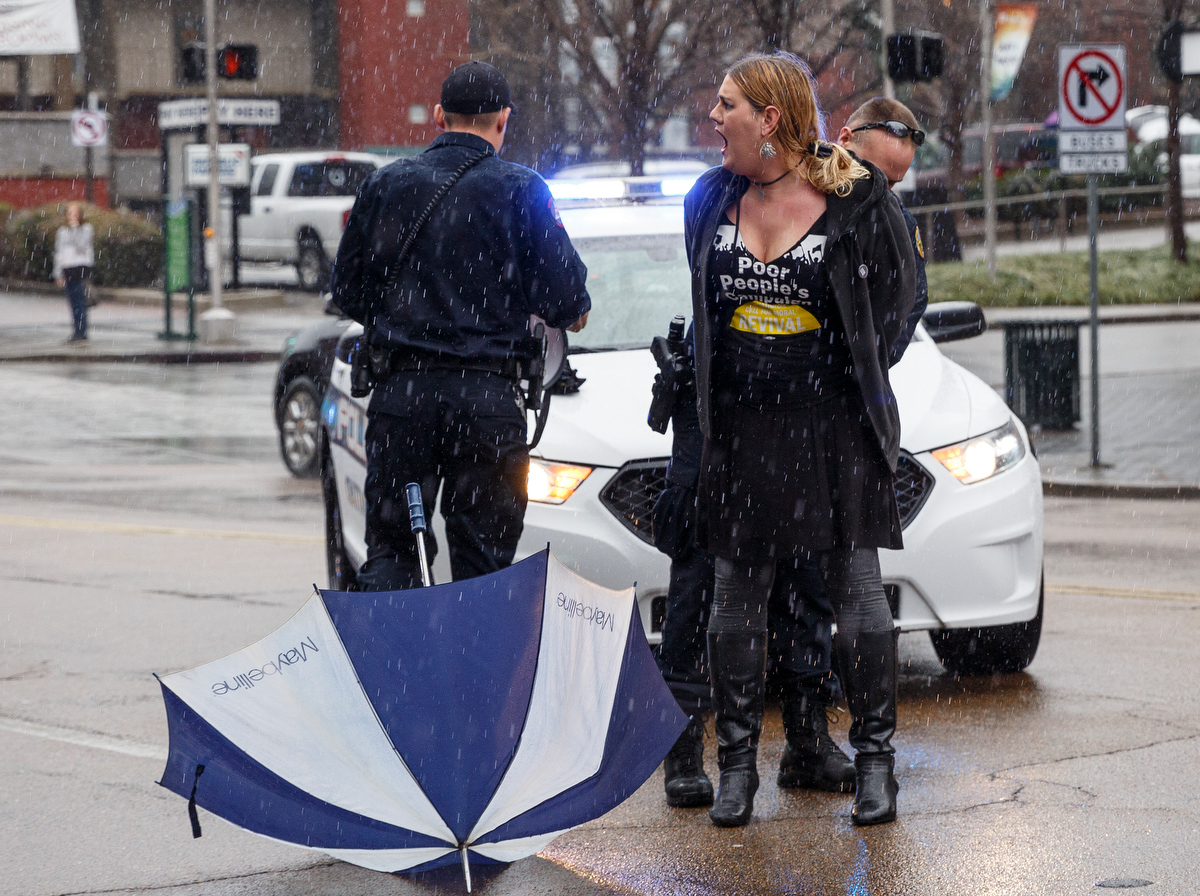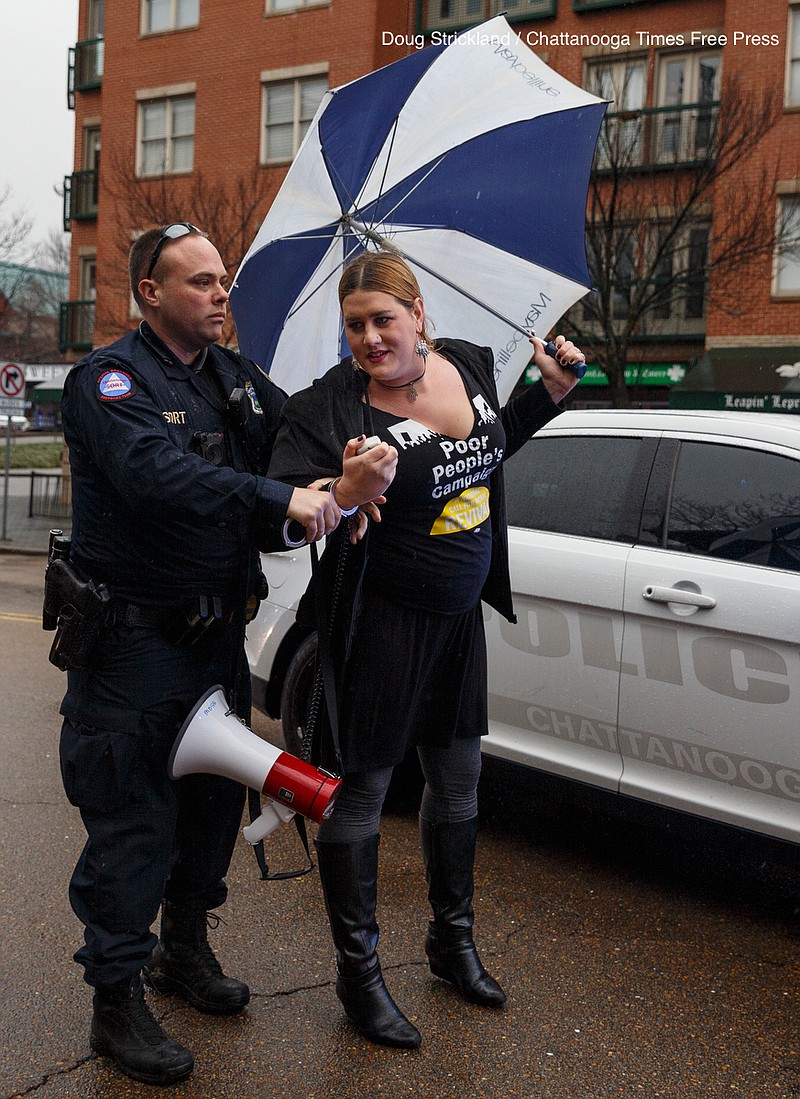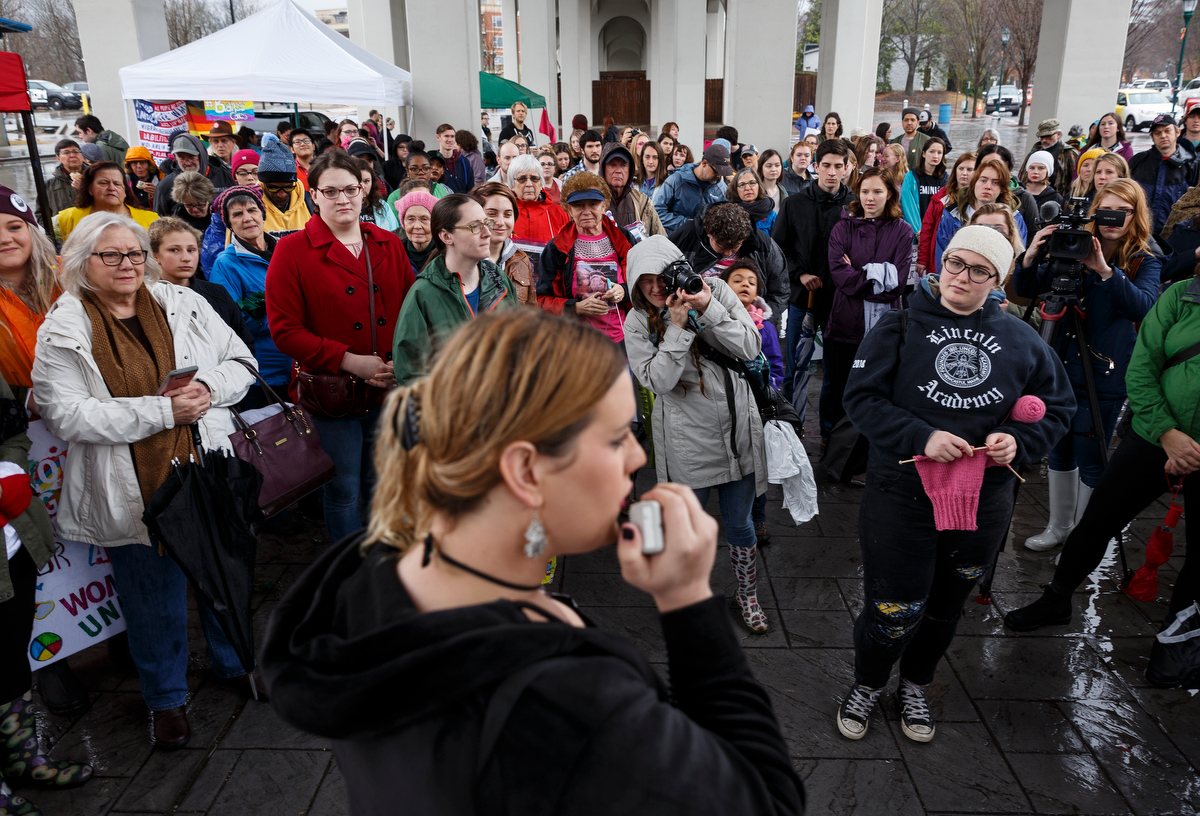NASHVILLE - A transgender Chattanooga pastor urged Tennessee Republican lawmakers Tuesday to drop efforts to include restrooms and locker rooms in state public indecency laws, accusing proponents of trying to turn people such as herself into "political footballs."
"Our real lives get sensationalized and pushed aside," the Rev. Alaina Cobb, a pastor at Mercy Junction Justice and Peace Center, told House Judiciary Committee members. "Reality is I'm not a threat any more than any other woman. And yet I face a much greater chance of assault than other women."
Cobb identified herself as transgender as well as intersex, defined as individuals born with sex characteristics such as genitals or chromosomes that don't fall within traditional definitions of male or female. While most males have XY chromosomes and females XX chromosomes, Cobb said she was born with XXY.
"I did not ask to be born intersex, that is simply a gift God bestowed upon me," Cobb said. "I did not ask to be assigned male at birth. That was simply a bad guess by the doctor. I will however ask that these attempts to harass and intimidate communities I belong to cease."
Her criticisms came as lawmakers consider the latest version of a bill that critics have charged yet again seeks to single out transgender people's use of public restrooms, dressing rooms and locker rooms, an issue that's surfaced repeatedly in recent years.
The bill, sponsored by Rep. John Ragan, R-Oak Ridge, in the House, applies to such facilities and involves indecent exposure.
It also contained a provision stating that "medical, psychiatric, or psychological diagnosis of gender dysphoria, gender confusion, or similar conditions, in the absence of untreated mental conditions, such as schizophrenia, does not serve as a defense to the offense of indecent exposure."
However, that provision, among several other provisions, was wiped out by a subcommittee amendment. As a result, the Tennessee Equality Project, which advocates at the state Capitol on LGBTQ issues, is now far less alarmed by the bill.
Cobb, however, said she still has concerns.
Advocates had said they were unable to testify on the House bill when the measure came up twice before. Concerns boiled over Tuesday when the committee reached the end of a special three-bill meeting that was supposed to include consideration of the indecent exposure bill.
But after Chairman Michael Curcio, R-Dickson, announced the bill would have to be delayed yet again because the panel's allotted time was nearly gone, House Minority Leader Karen Camper, D-Memphis, pushed back hard.
"Now, I have had a person come here to speak here before this committee - twice - from Chattanooga. They got up this morning to be here at at 8 a.m. because you asked us to deal with this bill," she told Curcio. "Now you have dismissed the person who has the bill, asked them to go away, saying we're not going to calendar the bill, move on to deal with some bills that we were not even supposed to be here to deal with."
After considerable back and forth, including interjections from Majority Leader William Lamberth, R-Portland, over the committee process, Curcio allowed Cobb to speak and she did for four minutes.
"The choice of where to conduct one's private business is a private issue, one that should be left to the person," Cobb told House committee members. "This is government encroachment into a very personal issue. Now I've been through this process, the one of switching which public bathrooms I use. I was sexually assaulted long before I switched. I am part of that statistic."
 Staff photo by Doug Strickland /
The Rev. Alaina Cobb shouts as she is arrested during the Chattanooga Women's March on Saturday, Jan. 19, 2019, in Chattanooga, Tenn. Multiple demonstrators were arrested during the march after walking in Market Street and ignoring police orders to move to the sidewalk.
Staff photo by Doug Strickland /
The Rev. Alaina Cobb shouts as she is arrested during the Chattanooga Women's March on Saturday, Jan. 19, 2019, in Chattanooga, Tenn. Multiple demonstrators were arrested during the march after walking in Market Street and ignoring police orders to move to the sidewalk. The committee then adjourned without taking action on the bill.
It was a far smoother affair later Tuesday afternoon in the Senate Judiciary Committee hearing as Chairman Mike Bell, R-Riceville, invited Cobb to speak, which she did, again criticizing the bill.
Earlier, bill sponsor Sen. Mark Pody, R-Lebanon, was asked by Sen. Jon Lundberg, R-Kingsport, what the amended bill now does.
"The only thing we're trying to do is almost codify what we're currently doing," Pody said. "We're trying to put locker rooms and showers in and where it's not written into code now, we're putting it in code."
Lundberg asked "we're fundamentally not, literally not, changing anything that we're not doing, we're just codifying practice?"
Replied Pody: "That's correct, yes sir."
Bell and Sen. Todd Gardenhire, R-Chattanooga, both voted for the bill. So did Democratic Sen. Sara Kyle of Memphis.
Chris Sanders, executive director of the Tennessee Equality Project, later said "it's amended, like the House version. So it wiped out the three references to trans people. The amendment takes out everything in the original bill after the enacting clause."
He said at this juncture, the bill from a practical standpoint only "names some public spaces."
Sanders said "a lot of people think the amendment added on to the bill. It wipes the bill clean after the enacting clause."
Cobb later said that while she realizes the amended version did drop much of the original bill's language, she still has concerns.
"Instead of direct targeting, it's sort of soft targeting," she said. "The people who are most harassed in restrooms, I mean, I quoted the statistic that 47 percent of trans people have been harassed in restrooms or assaulted in restrooms.
"And so, we can now be charged for harassment because we could then be charged with indecent exposure for simply going about our business. So it creates a very real risk, but one that is less targeted."
The bill is HB1151/SB1297.
Contact Andy Sher at asher@timesfreepress.com or 615-255-0550. Follow him on Twitter @AndySher1.

